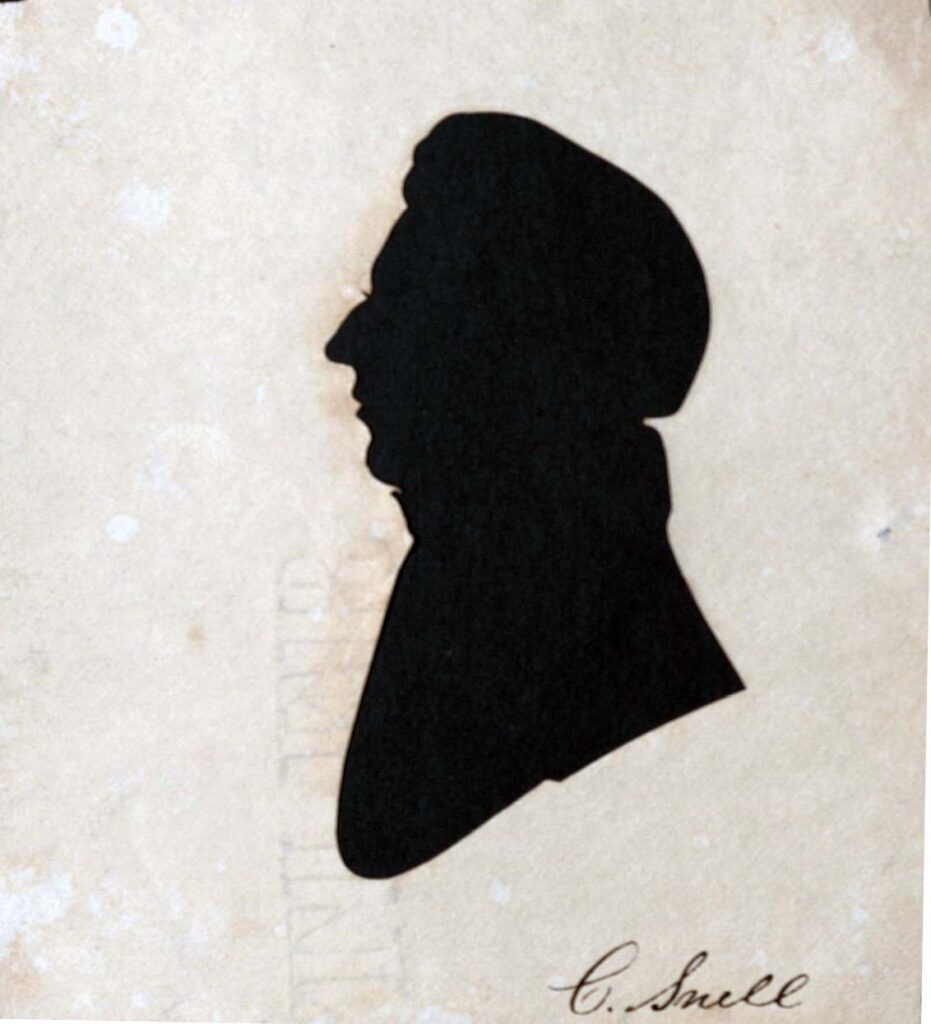
Poor in Eyesight and Correspondence Skills
Charles Snell was born in 1805 at Winthrop, Maine. Classmate David Shepley believed Snell came from one of the “choicest families in the Kennebec valley.” His father, Dr. Issachar Snell became the first surgeon in the Winthrop area and was one of the town’s most well-respected members. He also had the reputation of being “ardently devoted to his children” and would go to great measures to ensure their happiness. Growing up, Snell was likely well acquainted with Samuel Page Benson, a fellow member of Bowdoin’s Class of 1825. Both Snell and Benson were the sons of Winthrop’s leading families and they both attended Monmouth Academy in preparation for Bowdoin. In 1817, the Snells built a house on Winthrop’s Main Street, where Charles likely resided until he started college.
Snell matriculated at Bowdoin as a sophomore, in the fall of 1822. He was 17 when he moved to Brunswick and started to board at the Honorable B. Orr’s. He counted childhood friend Benson among his housemates, along with nine other members of the 1825 class. Page spent his junior year living in Maine Hall with Nathaniel Dunn and his senior year in Winthrop Hall with Charles Jeffrey Abbott. Snell also considered Jonathan Cilley a “special friend” for whom he had great admiration. Like many other members of his class, Snell was a member of the Athenean Society. The Executive Government occasionally cited Snell for neglecting his work and unexcused absences from the college. On one notable occasion, he was fined fifty cents for falling asleep at public worship with Cilley and William Stone. Despite his occasional misbehaviors, Snell was viewed as a promising member of his class. He was asked to speak at college exhibitions both his junior and senior years on the topics of antiquity and medieval history. Upon graduating, Snell was awarded the tenth rank in the class alongside his roommate Charles Abbott. At Commencement the two gave a colloquy entitled, “The probable Result of Efforts for the Emancipation of Slaves.” Snell believed that the abolition of slavery was a moral imperative and attacked arguments that “Africans were inferior in mental endowments and were incapable of civilization.” However, he also supported the gradual emancipation of slavery instead of granting enslaved Africans immediate freedom.
After receiving his bachelor’s degree, Snell began to study medicine. He trained under his father in Winthrop and returned to Bowdoin to receive his M.D. from the Maine Medical School in 1828. Snell’s next step was to move to Augusta where he set up a medical practice. Five years later he moved to Bangor, where he would remain for rest of his life. Snell married Charlotte R. Palmer of Waterville and the pair had several children. Sadly, Snell was doomed to outlive all his progeny, save a single daughter. Despite the tragedies in his personal life, Snell was an asset to his community. His biographer Nehemiah Cleveland makes the humorous observation that Snell, “is a good doctor, but I cannot praise him as a correspondent.” The archives do contain one letter from Snell to Cleveland, in which the doctor fails to answer any of Cleveland’s questions, instead beseeching him for a solution to nearsightedness. Apparently, Snell made some glasses that briefly improved his vision, before reverting his eyesight to a worse condition. Ocular failures aside, Snell appeared to enjoy a happy life in Bangor until his death in 1868.